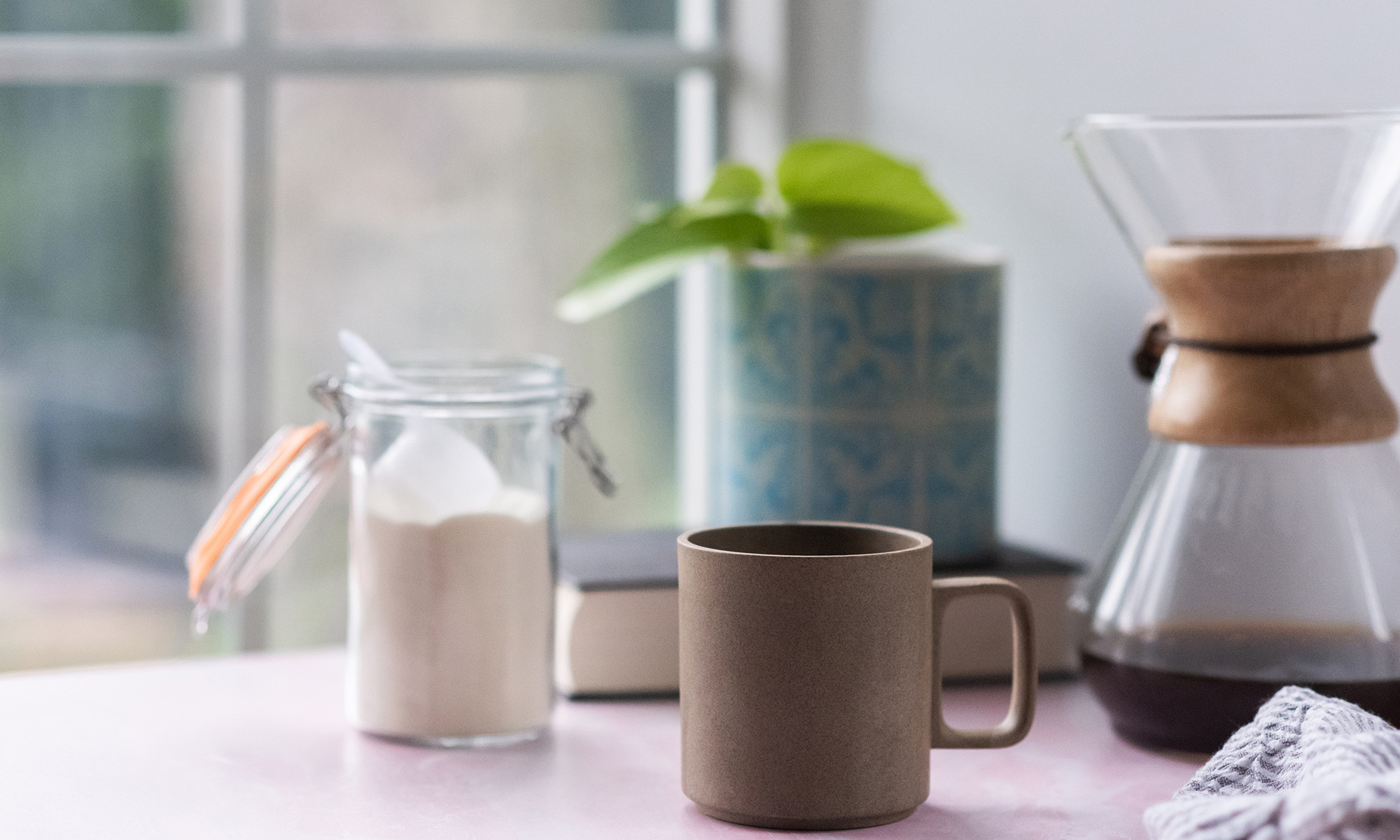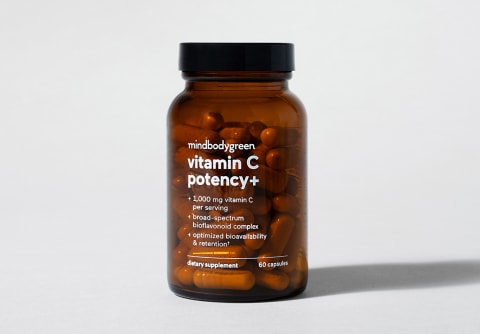Take Collagen? 3 Easy Ways To Make It Even More Effective
Make sure your collagen can perform at its best.

Advertisement
This ad is displayed using third party content and we do not control its accessibility features.

Beauty & Health Editor
Beauty & Health Editor
Hannah Frye is the Beauty & Health Editor at mindbodygreen. She has a B.S. in journalism and a minor in women’s, gender, and queer studies from California Polytechnic State University, San Luis Obispo. Hannah has written across lifestyle sections including beauty, women’s health, mental health, sustainability, social media trends, and more. She previously worked for Almost 30, a top-rated health and wellness podcast. In her current role, Hannah reports on the latest beauty trends and innovations, women’s health research, brain health news, and plenty more.
Image by Lauren Lee / Stocksy January 05, 2025 We carefully vet all products and services featured on mindbodygreen using our Our selections are never influenced by the commissions earned from our links. If you're going to spend money on supplements, you want to make sure you're investing in high-quality products. Otherwise, you could end up with loads of filler ingredients and hardly any actives—this is especially true with collagen, which is arguably one of the most popular complexion-focused supplements (and for good reason). However, you'll also want to incorporate other lifestyle practices to ensure your collagen can perform at its best (even if the product itself is top-notch). To come, three steps to consider: 1. In case you aren't aware, "Inflammation is one of the main enemies of any tissue," board-certified dermatologist Gary Goldenberg, M.D., assistant clinical professor of dermatology at the Icahn School of Medicine at Mount Sinai in New York, previously told mbg. Those connective tissues fueled by collagen are no exception. Inflammatory diets, which often include eating plans that are high in sugar, simple carbohydrates, and processed meats, activate the immune system and promote inflammation throughout the body, board-certified dermatologist Joshua Zeichner, M.D., once shared with mbg. "This may interfere with healing, including healing of environmentally damaged skin cells," he says. Sugar1, in particular, can be tough on collagen. "High sugar levels can lead to hardening and fragmentation of collagen, weakening the skin foundation, and promoting premature skin aging," Zeichner adds. So try to incorporate some anti-inflammatory principles into your diet when you can. 2. If your collagen blend doesn't contain vitamin C already, then make sure you get enough vitamin-C-rich foods or add a vitamin C supplement to your daily lineup. For those who would rather have a two-in-one, some quality collagen supplements already include vitamin C in the blend. 3. This may sound dramatic, but relaxation is your skin's best friend. Even if you're not prone to stress breakouts, anyone with a highly stressful environment can suffer the consequences of physical skin aging. So do your best to prioritize your mental health and incorporate daily stress-relieving rituals, such as yoga, meditation, and journaling, or simply give yourself a few minutes to just chill in silence (an underrated mindfulness ritual, in my opinion). Be mindful of inflammatory foods
Take a vitamin C supplement (or find a combination)
Never underestimate the power of daily relaxation
The takeaway
Once you have a high-quality collagen supplement in your daily practice, it's time to pair it with other skin-supporting choices. Do your best to decrease inflammation in the body via anti-inflammatory foods and stress-relieving activities, and always make sure your vitamin C levels are up to par. Not sure if you actually consume enough vitamin C daily? This guide will help you out.

 JaneWalter
JaneWalter 




























![Run An Ecommerce SEO Audit in 4 Stages [+ Free Workbook]](https://api.backlinko.com/app/uploads/2025/06/ecommerce-seo-audit-featured-image.png)




